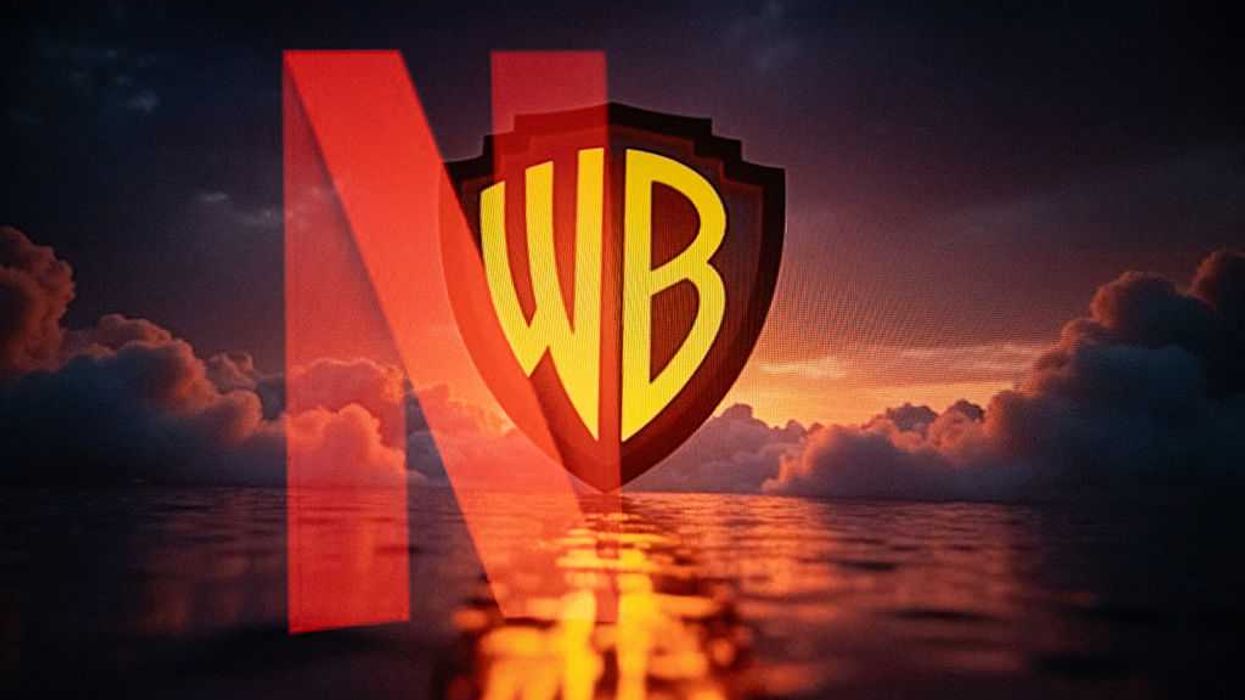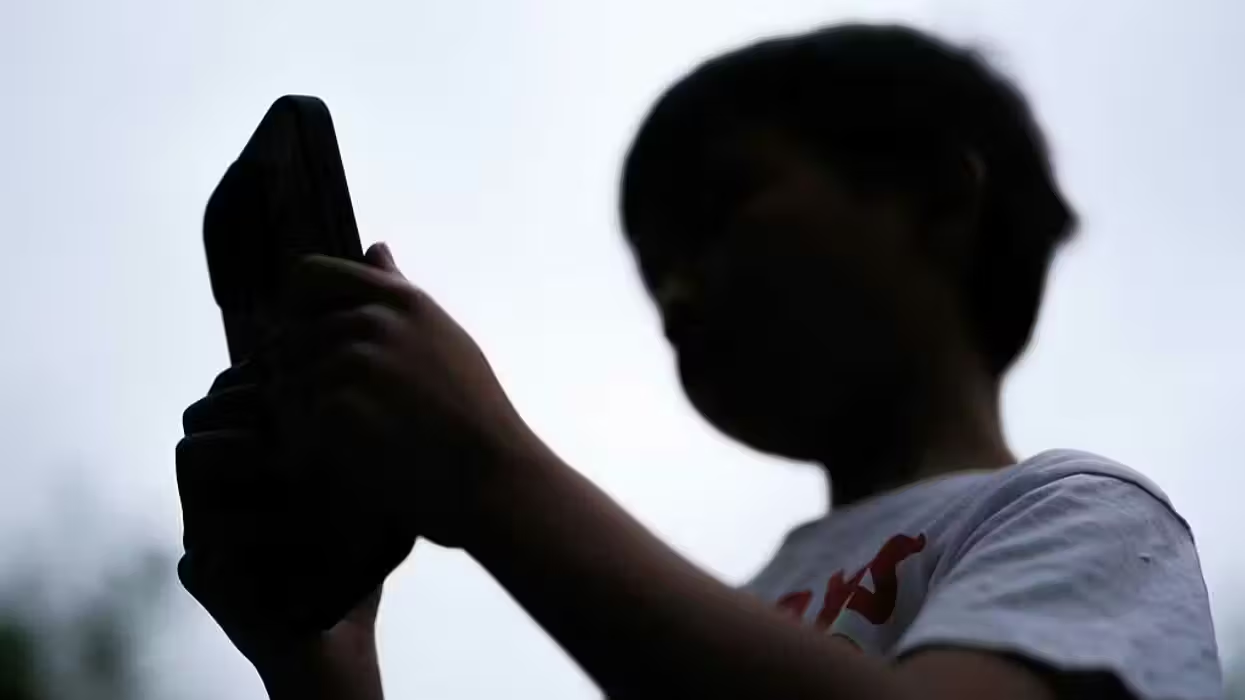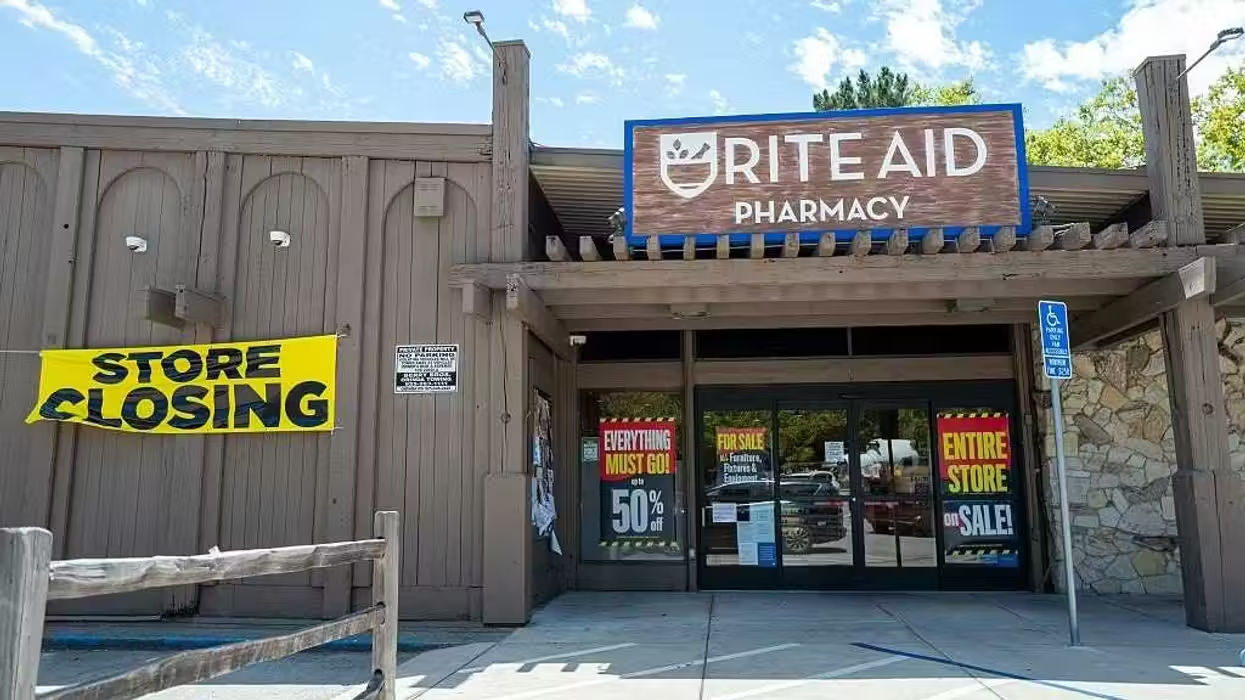
© 2025 Blaze Media LLC. All rights reserved.
[Editor’s note: The following is a cross post by John Harwood that originally appeared on CNBC.com]:
 A woman is overcome with emotion after meeting Democratic presidential candidate Illinois Senator Barack Obama at a rally on October 3, 2008 in Abington, Pennsylvania. (STAN HONDA/AFP/Getty Images)
A woman is overcome with emotion after meeting Democratic presidential candidate Illinois Senator Barack Obama at a rally on October 3, 2008 in Abington, Pennsylvania. (STAN HONDA/AFP/Getty Images)
President Barack Obama approaches his second inauguration amid persistent public resignation about the tepid economic recovery and a widespread belief that Washington's budget fights have made things worse.
The latest NBC News/Wall Street Journal poll shows that just 34 percent look at 2013 as a moment of economic expansion and opportunity; fully 60 percent call it a moment "to hold back and save because harder times are ahead."
Just 36 percent express significant confidence that Obama, after four years in the Oval Office, has the ability to produce a strong and growing national economy.
More ominously, as the White House and Congress move from the recent fiscal-cliff showdown to new battles over the federal debt limit and scheduled across-the-board budget cuts, a 51 percent majority says negotiations between the two ends of Pennsylvania Avenue make them less confident about prospects for economic improvement.
 Supporters of Democratic presidential nominee Senator Barack Obama (D-IL) listen to his speech during a downpour during a campaign rally at the University of Mary Washington in Fredericksburg, Virginia September 27, 2008. (REUTERS/Jason Reed).
Supporters of Democratic presidential nominee Senator Barack Obama (D-IL) listen to his speech during a downpour during a campaign rally at the University of Mary Washington in Fredericksburg, Virginia September 27, 2008. (REUTERS/Jason Reed).
That's triple the proportion who say those negotiations make them more confident.
Such attitudes, said Peter Hart, the Democratic pollster who conducts the NBC/WSJ survey with his Republican counterpart Bill McInturff, have fundamentally altered the public mood that prevailed during Obama's first inaugural four years ago.
Instead of "hope" in 2009, Hart explained, Americans are preoccupied with the attempt to "cope" with diminished economic circumstances.
Obama has received only a faint version of the bump-up in public evaluations that re-elected president's typically received after election-year acrimony fades. His overall approval rating stands at 52 percent, slightly up from 48 percent one year ago.
But his ability to rise remains limited by public pessimism. Only 35 percent say the country is headed in the right direction, while 57 percent call America "on the wrong track."
At no point in his presidency, which began amid a deep recession and financial crisis, has the public expressed greater optimism than pessimism.
Congress fares even worse than the president. Just 14 percent approve of the job Congress is doing, while an overwhelming 81 percent disapprove.
That's significantly worse than in Jan. 2009, when Democrats controlled both houses of Congress, and in Feb. 2011, after Republicans had taken over the House in mid-term elections.
 U.S. Senator Barack Obama addresses the crowd on day 4 of the Democratic National Convention as it concluded at Invesco Field in Denver, CO on Thursday, August 28, 2008. (Yoon S. Byun/Globe Staff).
U.S. Senator Barack Obama addresses the crowd on day 4 of the Democratic National Convention as it concluded at Invesco Field in Denver, CO on Thursday, August 28, 2008. (Yoon S. Byun/Globe Staff).
The Republican Party's image has declined precipitously after its prolonged battles with Obama. Just 26 percent of Americans expressed a positive view of the party, while 49 percent express a negative view. The Democratic Party, by contrast, is rated positively by 44 percent, negatively by 38 percent.
And House Speaker John Boehner has seen his image suffer since assuming the speaker's gavel from Nancy Pelosi. In Jan. 2011, Boehner was rated positively by 23 percent, negatively by 15 percent. Now just 18 percent view him positively, 37 percent negatively.
The standing of Obama's party and his personal popularity— majorities rate him positively on likability, compassion, leadership and ability to handle a crisis—gives him an edge over Republicans in budget talks.
If talks fail to increase the debt limit and government proves unable to meet its obligations, 45 percent say Republicans in Congress will be more to blame, while 33 percent would point the finger at Obama and Democrats in Congress.
The poll contains mixed signals on the issue of gun control, Obama's new priority after the Newtown, Conn. shootings. By 56 percent to 7 percent, Americans say laws government the sale of firearms should be more strict rather than less.
 A spectator raises her fist in celebration seconds after it was announced that Barack Obama will be the 44th President of the United States at Ebenezer Baptist Church, Tuesday, Nov. 4, 2008. (AP Photo/Pouya Dianat, Atlanta Journal & Constitution).
A spectator raises her fist in celebration seconds after it was announced that Barack Obama will be the 44th President of the United States at Ebenezer Baptist Church, Tuesday, Nov. 4, 2008. (AP Photo/Pouya Dianat, Atlanta Journal & Constitution).
Yet Americans cite the absence of parental oversight and lack of effective mental health treatment more than the availability of assault weapons and high-capacity ammunition clips as causes of recent mass shootings.
And the National Rifle Association, now gearing up to block Obama's legislative efforts on guns, retains a net favorable rating with the public—41 percent positive, 34 percent negative.
Obama's prospects on immigration reform appear bright. Not only have Republican leaders acknowledged the need to pursue new approaches to improve their standing with Hispanic voters, but the poll shows that 52 percent of Americans favor allowing illegal immigrants who have jobs here to apply for legal status.
The NBC/WSJ survey of 1,000 adults, conducted by telephone from Jan. 12-15, carries a margin for error of 3.1 percentage points.
--
RELATED:
- Obamacare Drives a Bull Market in Staffing Agencies
- California and Wall Street Are Back!
- 57 Percent of Workers Say Let Us Choose Health Plans
- Good Time to Buy a House? Yes. A Car? Not So Fast…
©2013 CNBC LLC., John Harwood. Featured image courtesy Getty Images.
Want to leave a tip?
We answer to you. Help keep our content free of advertisers and big tech censorship by leaving a tip today.
Want to join the conversation?
Already a subscriber?
more stories
Sign up for the Blaze newsletter
By signing up, you agree to our Privacy Policy and Terms of Use, and agree to receive content that may sometimes include advertisements. You may opt out at any time.
Related Content
© 2025 Blaze Media LLC. All rights reserved.
Get the stories that matter most delivered directly to your inbox.
By signing up, you agree to our Privacy Policy and Terms of Use, and agree to receive content that may sometimes include advertisements. You may opt out at any time.






